
Modernidade e representação visual da mulher na primeira metade do século XX: da cocotte à violão
Com base na análise da revista A Maçã (1922-1926) e do livro Madame Pommery (1919-1920), de Hilário Tácito, foram identificadas condutas modernizadoras estabelecidas por mulheres da década de 1920, especialmente por aquelas que transitavam pela vida mundana e nos espaços de prostituição, das cidades do Rio de Janeiro e de São Paulo. São estas condutas modernizadoras dos dois espaços urbanos que deverão ser abordadas no trabalho, evidenciando-se similaridades e dissimilitudes entre elas. A partir da identificação dessas condutas, buscaremos as suas representações na imprensa, na primeira metade do século XX e a transição da linguagem da cocotte para a mulher com traços da mulher brasileira representada na imprensa na segunda metade do século XX. Ambas as representações trazem estereótipos, os quais procuraremos identificar e discutir.
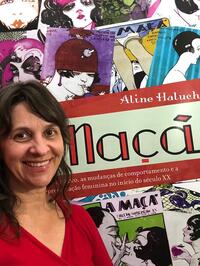

Joaquín Torres García e a construção de uma identidade latino-americana
O projeto de pesquisa aborda o arcabouço das temáticas e valores que fundamentam uma identidade latino-americana no Design, com foco na Escola do Sul, analisando a Revista Removedor do Atelier Torres García (ATG), Uruguai (1944-1953). A pesquisa investiga se há uma identidade latino-americana nas práticas de design, examinando como a linguagem construtivista universal se entrelaça com saberes locais no contexto do ATG. O objetivo é compreender a formação dessa linguagem, analisar registros históricos da época e examinar como ela é comunicada atualmente. Espera-se, ainda, mapear os fundamentos do ATG, explorar práticas no design e propor uma cartografia social. A pesquisa se concentra na construção de uma identidade latino-americana autêntica e não eurocêntrica, destacando a importância dos saberes locais. Serão utilizadas fontes primárias e secundárias, incluindo a Revista Removedor, e serão conduzidas entrevistas com especialistas. A relevância reside em contribuir para a compreensão interdisciplinar da identidade latino-americana no design, promovendo uma apreciação mais ampla das contribuições da região e fortalecendo estudos do sul no campo do Design. A investigação faz parte de projeto de doutorado e serão apresentados os direcionamentos iniciais da pesquisa em andamento, que dura até 2028.
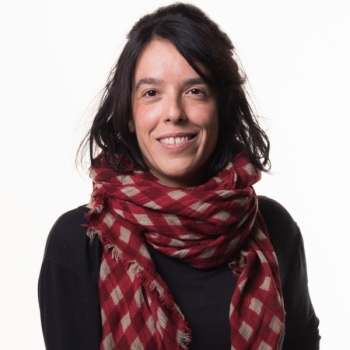

Inteligência Artificial Explicável e imagem
As ferramentas de Inteligência Artificial (IA) ainda encontram dificuldade para interpretar imagens de forma semântica (ou a partir de contextos específicos), incorrendo em erros. Com a premissa de que designers são especialistas em construção de imagens que visam facilitar a comunicação e o entendimento de uma mensagem visual, a pesquisa pretende entender e propor a participação destes profissionais no aprimoramento de ferramentas de Inteligência Artificial Explicável (IAX) que reconhecem e interpretam imagens.
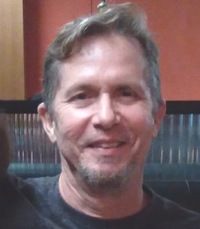

Daniela de França Soares_A invisibilidade_graficos.png

Cartografias do Afeto - A Quinta da Boa Vista como espaço de produção de memória coletiva
Procurando examinar as interações entre memória coletiva, espaço social, arquitetura, cartografia e design, por meio de uma análise minuciosa das relações entre o Parque da Quinta da Boa Vista e a população, a pesquisa por finalidade compreender como as práticas cartográficas e de design podem ser integradas de maneira interdisciplinar para mapear as conexões afetivas e as experiências vividas no espaço público. Através dessa exploração, almeja-se enriquecer a compreensão da formação das identidades urbanas, culturais e sociais, promovendo diferentes abordagens na representação e interação com o ambiente construído.
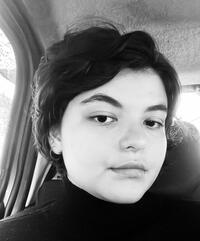

questões raciais

Métodos data-driven design como cultura nas práticas projetuais do designer
Os objetos conectados podem coletar e armazenar dados os quais são capazes de serem acessados por aplicativos e serviços para identificação, análise e personalização do comportamentos dos indivíduos. Métodos data-driven design (DDD), conjuntos de técnicas baseadas na quantificação do uso de produtos e serviços, são comumente utilizados como uma abordagem quantificada, e precisa para identificação de padrões de uso e possíveis resoluções de problemas, facilitando a tomada de decisões em projetos de design. Nosso objetivo neste trabalho é investigar o uso de métodos DDD para a análise do uso de celulares pela pessoa usuária. Como resultado, será investigado a possibilidade da criação de uma identidade digital.
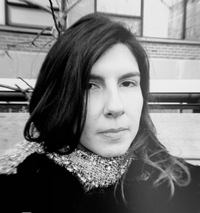

Editorial design as a tool for maintaining the material culture of the Xukuru do Ororubá people
O presente projeto preliminar de pesquisa visa registrar e documentar a produção de elementos da cultura material do povo Xukuru do Ororubá, como forma de interseccionar o fazer design com os saberes ancestrais do povo em questão elaborando como resultado do processo da pesquisa um material de cunho educativo para a comunidade.
Este projeto surge de experiências posteriores vindas de projetos como o Livro Didático para a T.I. Xukuru do Ororubá, submetido ao incentivo da Lei Aldir Blanc no estado de Pernambuco, onde por meio do design editorial, da elaboração e construção de um artefato de cunho educacional se enxergou a necessidade de elaboração de materiais voltados ao fazer artístico do povo. Fazer esse que é intrínseco à forma de viver o mundo, interligado com a espiritualidade, a agricultura, a história, a identidade e outros elementos que compõem a vida no Território Xukuru do Ororubá.
Além disso, também visa fomentar a formação de novos agentes perpetuadores dessas práticas na comunidade indígena que é base desse projeto, tendo em vista que muitas dessas práticas são de conhecimento dos mais velhos da comunidade. Então por meio do registro e descrição dessas práticas espera-se estar perpetuando para a comunidade estes saberes que estavam em processo de declínio.
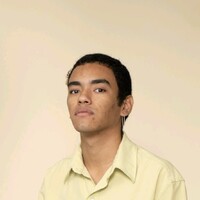

valores/pensamento

sul global

data-driven design

cultura e sociedade

design na escola

design e cidade

povos indígenas

Luana Mendonça Batista

Design

Nathalia Lia

Fernando Alvarus de Oliveira

Aline Haluch

Matheus Augusto de Mendonça Silva

Joana Berrondo

Arthur Henrique Silveira de Souza
